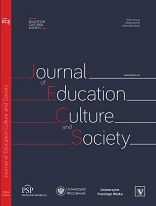Educational context of time from the perspective of adult development
Educational context of time from the perspective of adult development
Author(s): Jerzy SemkówSubject(s): Philosophy, Social Sciences, Psychology, Sociology
Published by: Fundacja Pro Scientia Publica
Keywords: educational context of time;early adulthood;middle adulthood;late adulthood;development of adults
Summary/Abstract: The basic assumption is that time, which regulates our existence in the world, is the special medium and that there are “costs (lost opportunities) associated with notinvesting time wisely” (Zimbardo, & Boyd, 2009, p. 19). The diverse attitudes of certain individuals towards time may be viewed from various perspectives. The author reflects on the time phenomenon from the perspective of learning adults, with regard to three life periods in the process identiÞ ed in andragogy as maturing to adulthood. In early adulthood time is especially significant as people assume the role of the ones responsible for their professional development and their families. In the second stage – middle adulthood – due to varying evaluations of their achievements, time is treated either as a friend or as an enemy. In this situation undertaking learning activity becomes a springboard, some kind of antidote to the emerging life problems. It may also bring about fundamental disturbances to the psycho-social balance of an adult person, suchas change of his living environment. The value of time as a non-renewable good incre-ases significantly the in late adulthood, after crossing the threshold of 60. This refers particularly to people who consider old age as an important stage of life. Thus, temporal perspective in each stage of adulthood varies, especially when learning is a regularpart of life activities of an adult person.
Journal: The Journal of Education, Culture, and Society
- Issue Year: 7/2016
- Issue No: 1
- Page Range: 45-53
- Page Count: 9
- Language: English

